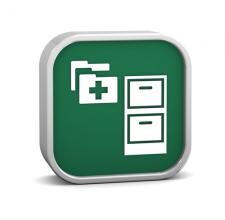Two stores in the latest Today’s Hospitalist caught my eye. The first, Making Headway with Difficult Patients discusses “how to defuse tension, cope with patient fears, and have less stress.” The second, Breaking the Foley habit illustrates how unnecessary catheter use climbs back up to its baseline level after intensive interventions are ended.
Two stores in the latest Today’s Hospitalist caught my eye. The first, Making Headway with Difficult Patients discusses “how to defuse tension, cope with patient fears, and have less stress.” The second, Breaking the Foley habit illustrates how unnecessary catheter use climbs back up to its baseline level after intensive interventions are ended.
I wonder if there is some relationship between the two.
The difficult patients article is a good one because it encourages physicians to look at their own personalities to see if these might be a contributing factor, and to take more seriously patients’ concerns about inadequate pain management. It also recommends bringing in psychiatrists and social workers to deal with some of the most challenging cases, and to work as a team.
I know that quite a few patients can be “difficult” and even disruptive. Many of these behaviors are attributable to the stress of being sick and being in the hospital. Assuming patients can control themselves, it’s probably a smart strategy to keep quiet rather than be labeled as difficult. And yet, maybe more patients than the article acknowledges have a real justification for being such a challenge.
The catheter article reports how nonindicated Foley use in the hospital dropped from 15% to 1.2% but then drifted back toward the baseline after the dedicated “Foley nurse” who checked up on everyone daily was withdrawn.
“Team members are still giving sporadic feedback on Foley use to units, and a patient safety officer is making sure that electronic alerts to discontinue a Foley reach the right provider. But Dr. Johnson admits those efforts, ‘are not having nearly the effect that having the Foley nurse had.’”
“One of the unexpected results of the study was identifying a significant problem: Foley related trauma. While nurses recognize catheter-related injuries, those are rarely brought to doctors’ attention“. (emphasis mine)
“According to Dr. Johnson, not only is trauma common, but in some cases it can be dramatic and include false passage and bladder perforation. Even the act of removing Foley catheters can cause trauma to the urethra and bleeding.”
Do you think this kind of indignity and injury –that the doctor is unaware of– would be enough to cause a patient to qualify as difficult in the mind of his clinicians? What if we add to the mix other common problems such as a noisy environment that prevents sleep, medication errors, and failure to follow infection prevention procedures such as handwashing?
It’s actually surprising that more patients don’t get tagged as difficult.









